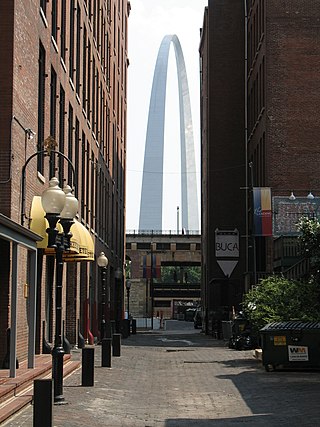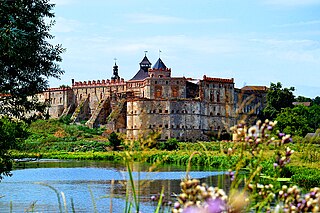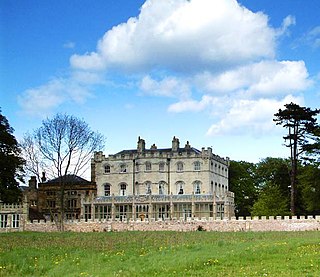
Old Sacramento State Historic Park occupies around one third of the property within the Old Sacramento Historic District of Sacramento, California. The Old Sacramento Historic District is a U.S. National Historic Landmark District. The Historic District is sometimes abbreviated as Old Sacramento, or Old Sac, and since the 1960s has been restored and developed as a significant tourist attraction.

Mount Eden is a suburb in Auckland, New Zealand whose name honours George Eden, 1st Earl of Auckland. It is 4 kilometres (2.5 mi) south of the Central Business District (CBD). Mt Eden Road winds its way around the side of Mount Eden Domain and continues to weave back and forth as it descends into the valley; it runs south from Eden Terrace to Three Kings. Mt Eden village centre is located roughly between Valley Road and Grange Road. The domain is accessible on foot from many of the surrounding streets, and by vehicle from Mt Eden Road. The central focus of the suburb is Maungawhau / Mount Eden, a dormant volcano whose summit is the highest natural point on the Auckland isthmus.

Auchinleck House is an 18th-century mansion in Scotland. It is situated near the town of Auchinleck near Cumnock and Ayr in East Ayrshire. The Auchinleck Estate has been inhabited since the 13th century, and the remains of Auchinleck Castle and Auchinleck Old House stand in the estate. The house is protected as a category A listed building, while the two ruined dwellings are scheduled monuments.
Castle Eden is a village in County Durham, England, south of Peterlee, Wingate, Hutton Henry, the A19 and Castle Eden Dene. The former Castle Eden Brewery was home to Castle Eden Ale.

Windsor Castle is a royal residence at Windsor in the English county of Berkshire, about 25 miles (40 km) west of central London. It is strongly associated with the English and succeeding British royal family, and embodies almost a millennium of architectural history.

Grand Detour is an unincorporated census-designated place in Ogle County, Illinois, United States. As of the 2010 census, its population was 429. The village is named after an odd turn in the Rock River, which flows north past the village, rather than its normal southwestern course. John Deere invented the steel plow in Grand Detour, and the John Deere House and Shop is a U.S. National Historic Landmark.

Scotchtown is a plantation located in Hanover County, Virginia, that from 1771 to 1778 was owned and used as a residence by U.S. Founding Father Patrick Henry, his wife Sarah and their children. He was a revolutionary and elected in 1778 as the first Governor of Virginia. The house is located in Beaverdam, Virginia, 10 miles (16 km) northwest of Ashland, Virginia on VA 685. The house, at 93 feet (28 m) by 35 feet (11 m), is one of the largest 18th-century homes to survive in the Americas. In its present configuration, it has eight substantial rooms on the first floor surrounding a central passage, with a full attic above and English basement with windows below. It was designated a National Historic Landmark in 1965.

Kinross House is a late 17th-century country house overlooking Loch Leven, near Kinross in Kinross-shire, Scotland.

The Eden Park Station No. 7 is a historic structure located in Eden Park in Cincinnati, Ohio, United States. Constructed in the late nineteenth century as a significant part of the city water supply system, it was used for its original purpose for only a few decades. As a work of Cincinnati's most important architect, it has been named a historic site.

A gunpowder magazine is a magazine (building) designed to store the explosive gunpowder in wooden barrels for safety. Gunpowder, until superseded, was a universal explosive used in the military and for civil engineering: both applications required storage magazines. Most magazines were purely functional and tended to be in remote and secure locations. They are the successor to the earlier powder towers and powder houses.

Castle Rock, also called Osborn Castle, is the estate of former Illinois Central Railroad president William H. Osborn in Garrison, New York, United States. It sits on the hill of the same name, looking down on the Hudson River 620 feet (190 m) below. Visible from West Point across the river and traffic on NY 9D passing through Garrison, it has become one of the most recognizable man-made landmarks of the Hudson Highlands.

The San Dimas Hotel, also known as Walker House, the Carruthers Home, and the San Dimas Mansion, is a historic structure in San Dimas, California, built by the San Jose Ranch Company in 1887. Originally built as a hotel, the 15,000-square-foot (1,400 m2) structure had 33 rooms and 14 fireplaces. The hotel was built in anticipation of a land boom that never happened, and it never had a paying guest. In 1889, the property was sold to James W. and Sue Walker for $25,000. After being occupied by seven generations of Walkers, the property was turned into a restaurant in 1979. The building became vacant in 1997 and was later acquired and renovated by the City of San Dimas. It was listed on the National Register of Historic Places in 1972.

The architecture of St. Louis exhibits a variety of commercial, residential, and monumental architecture. St. Louis, Missouri is known for the Gateway Arch, the tallest monument constructed in the United States. Architectural influences reflected in the area include French Colonial, German, early American, European influenced, French Second Empire, Victorian, and modern architectural styles.

Medzhybizh Fortress also known as Medzhybizh Castle, is situated at the confluence of the Southern Bug and Buzhok rivers, in the town of Medzhybizh, Ukraine. Today the castle is part of the National Historical and Cultural Reserve.

The New York Landmarks Conservancy is a non-profit organization "dedicated to preserving, revitalizing, and reusing" historic structures in New York state. It provides technical and financial skills to owners of historic properties. In the half century since its 1973 founding, the conservancy has provided more than $60 million in grants and loans.

The Castle at Castle Eden, County Durham, England, is an 18th-century, Palladian style, mansion house and a Grade II* listed building. No trace remains of the medieval castle of Robert the Bruce.

The Old Chappaqua Historic District is located along Quaker Road in the town of New Castle, New York, United States, between the hamlets of Chappaqua and Millwood. It was the original center of Chappaqua, prior to the construction of the New York and Harlem Railroad and the erection of its station to the south in the mid-19th century. In 1974 it was recognized as a historic district and listed on the National Register of Historic Places.
Savannah is a town in the district of Bodden Town, Cayman Islands. With its close proximity to the territory's capital city, George Town, and housing being cheaper than in the capital, many opted to reside there. It is about a 10-minute drive from George Town. Savannah has one primary school, a post office, and a shopping center with a supermarket. There are a few restaurants and a café. Savannah is also the location of Pedro St. James Castle, which is the oldest building in the Cayman Islands and is often referred to as the “Birthplace of Democracy” in the islands, as the territory's first legislative body was formed there.





















